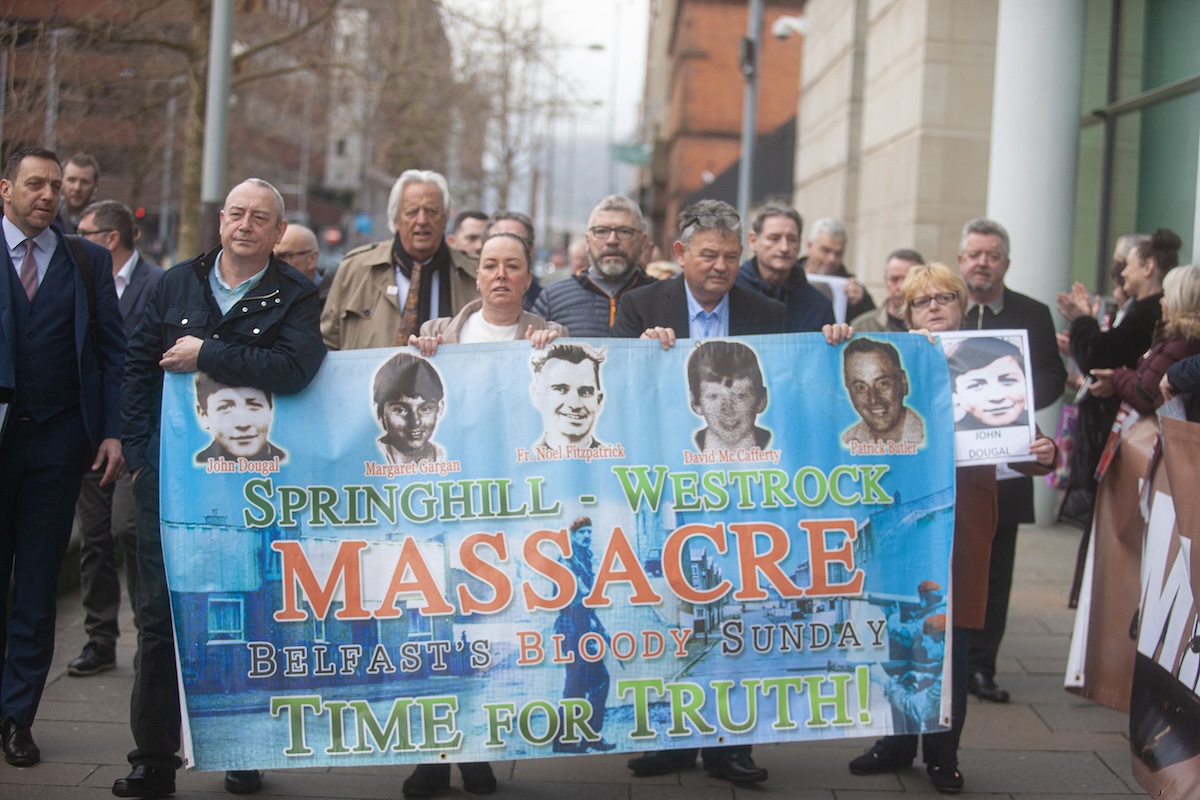
Final evidence was delivered at the inquest into the Springhill/Westrock massacre just hours before it was due to be shut down this week.
Five people - three teenagers, a priest and a father-of-six - were killed by the British Army in west Belfast in 1972.
Those who died were John Dougal, 16, Patrick Butler, 37, Father Noel Fitzpatrick, 42, David McCafferty, 15, and Margaret Gargan, 13. Two others were injured.
The Springhill Massacre reflected the events the previous year in Ballymurphy in that all those shot dead were civilians. The British claimed that the victims were gunmen or had been caught in crossfire during a gun battle – none of this was true.
Three of those killed were children, one was a father of six and the last was the second priest from the greater Ballymurphy area to die in the conflict.
Once called the ‘forgotten massacre’, a fresh inquest was ordered by the North’s attorney general in 2014 after the original inquest in 1973 returned an open verdict. It began hearing evidence last February and its final submissions came just hours before new legacy laws come into effect.
Final hearings have been taking place in a series of inquests as part of an intensive court schedule ahead of the deadline. Some inquests have managed to conclude, while others have been halted in different ways.
Family members rose to their feet and clapped as the coroner formally ended the evidence hearings. Relatives then took part in a protest over the Legacy Act.
Harry Gargan was 12 when his sister Margaret, who was just 13, was killed. She had been sitting talking with friends in the street when she was gunned down.
“We were euphoric because we got ours finished, but coming here today, you just think of other families who have been unable to achieve that; from the outset all we wanted was an inquest,” said Mr Gargan.
“We’ll keep supporting these families, we know what they’re going through. We fought for 52 years.
“Our last parent, David McCafferty (who lost his 15-year-old son, David) died just before Christmas, he was 94, that had a very bad effect on us.”
He added: “I always think of my mother coming back from the original inquest - she was a bit naive expecting an apology or something.
“Her 13-year-old daughter was described as a 20-year-old gunman with a gun in his left hand. It totally destroyed her.”
Natasha Butler, whose grandfather was killed, said it was a “hard, long journey” to get to this point.
She said the Legacy Act was a “cruel” piece of legislation which should be scrapped.
“It’s been cruel and it’s been very traumatising waiting to find out the circumstances of how our loved ones died,” she said.
“It is bittersweet. While we may have had our day in court, our hearts are broken for so many who are being denied their opportunity for truth, justice and accountability.”
She said it was a “huge relief” to get the inquest evidence over the line.
“This was a day we never ever thought would have been possible back in 2014,” she said.
“It’s been cruel and very traumatising waiting to find out the circumstances of how our loved ones died.
“A huge relief has now been lifted and it is now in the coroner’s hands. Almost 52 years to reach this point, we never gave up.
“My thoughts today are also with every legacy family impacted by the cruel and inhumane Legacy Bill. We stand with you.”
The coroner said he would be in a position to deliver his findings at some point this year, but not before September.
![[Irish Republican News]](https://republican-news.org/graphics/title_gifs/rn.gif)
![[Irish Republican News]](https://republican-news.org/graphics/title_gifs/harp.gif)

